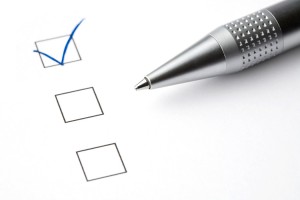 The phone rang this morning. It was a telemarketer on the line. He asked, "Are you the owner?" I said "Yes". "Do you accept credit cards?" was his second question. Those questions qualify the prospect so they were appropriate to ask. Then without testing for interest, or asking me about my issues and needs, he said, "I just happen to be in the area..." He blew it. I couldn't get the words out fast enough. "No, no, no. No thanks". And I hung up the phone. What area was he talking about? I happened to be working at home so I wasn't in my usual area which is my business office. Why would I want to meet with him? I think he was selling a merchant account but I don't know. Maybe it was a service to analyze charges. He gave me no reason to want to meet him.
If you're a telemarketer, you don't want to get me on the phone. I'm not the most gracious of prospects. Cold calling is tough but it's even more difficult in today's times. A cold call is an interruption in someone's day. Unless you grab their attention immediately, they're going to hang up. Cold calling is a presentation. His approach was like a speech without an opening. Imagine standing before your audience and saying, "Is everybody here a business owner?" Does everybody use merchant accounts?" "I'll be in the back setting up demonstrations." You would have a mass exodus. A good presentation begins with a quick hello and introduction and then a grabber or hook. Public speaking is about communication. And communication is about a relationship between a sender and a receiver. What message are you sending? Your intention may be positive, but the real meaning of the communication is the effect it has on the receiver. If you intend to compliment someone and they receive it as an insult, then the insult was the actual message.
The phone rang this morning. It was a telemarketer on the line. He asked, "Are you the owner?" I said "Yes". "Do you accept credit cards?" was his second question. Those questions qualify the prospect so they were appropriate to ask. Then without testing for interest, or asking me about my issues and needs, he said, "I just happen to be in the area..." He blew it. I couldn't get the words out fast enough. "No, no, no. No thanks". And I hung up the phone. What area was he talking about? I happened to be working at home so I wasn't in my usual area which is my business office. Why would I want to meet with him? I think he was selling a merchant account but I don't know. Maybe it was a service to analyze charges. He gave me no reason to want to meet him.
If you're a telemarketer, you don't want to get me on the phone. I'm not the most gracious of prospects. Cold calling is tough but it's even more difficult in today's times. A cold call is an interruption in someone's day. Unless you grab their attention immediately, they're going to hang up. Cold calling is a presentation. His approach was like a speech without an opening. Imagine standing before your audience and saying, "Is everybody here a business owner?" Does everybody use merchant accounts?" "I'll be in the back setting up demonstrations." You would have a mass exodus. A good presentation begins with a quick hello and introduction and then a grabber or hook. Public speaking is about communication. And communication is about a relationship between a sender and a receiver. What message are you sending? Your intention may be positive, but the real meaning of the communication is the effect it has on the receiver. If you intend to compliment someone and they receive it as an insult, then the insult was the actual message.
In the case of the telemarketer, he needed to change the script. A common mistake in presentations is to memorize lines and deliver them mechanically. The best speakers and presenters connect with the audience and build a relationship of trust. Public speaking is a conversation with the audience whether it's one-on-one, on the telephone, or to a large audience. It's all public speaking.


